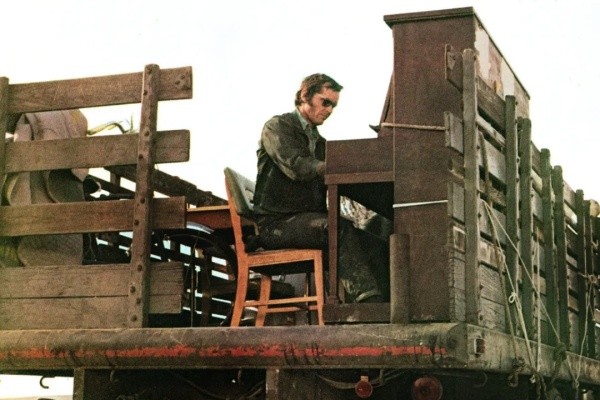Clara Law deconstructs the meaning of home and family in this sometimes overly-dramatic take on the psychological and emotional tolls of being an immigrated Chinese in a foreign land.

Review #2,308
Dir. Clara Law
1996 | Australia | Drama | 95 mins | 1.85:1 | English, Cantonese & German
R21 (passed clean) for sexual scenes
Cast: Annette Shun Wah, Annie Yip, Anthony Brandon Wong, Edwin Pang, Lee Fung-Sing
Plot: An ageing Hong Kong couple moves to Australia with their two youngest sons. They stay with a daughter who has already begun a successful career. Meanwhile, their eldest daughter lives in Germany and their eldest son remains in Hong Kong.
Awards: Won Silver Leopard (Locarno); Won Best Original Film Score & Nom. for 8 Golden Horses – Best Picture, Best Director, Best Supporting Actress (x2), Best Original Screenplay, Best Cinematography, Best Art Direction, Best Costume Design & Make-up
Source: Southern Star Films
Accessibility Index
Subject Matter: Moderate – Chinese Identity; Immigrant; Home; Family
Narrative Style: Slightly Complex
Pace: Slightly Slow
Audience Type: Slightly Arthouse
Viewed: Oldham Theatre (Restored Classics)
Spoilers: No
I was very impressed by the restoration quality of this work from the ‘90s by Clara Law, who previously directed Autumn Moon (1992), the only other picture of hers that I have seen so far.
Apparently, the first-ever film that Australia submitted to the Oscars for the Best Foreign Language Film category, Floating Life continues Law’s preoccupation with the theme of identity, particularly the ethnic Chinese identity as it is mediated by external forces of immigration.
What does it mean to be an immigrated Chinese in a foreign land? The question is asked, but Law makes explicit that she is referring to the Hong Kong Chinese identity.
The fact that Floating Life was made a year before the Hong Kong handover to China also hints at what is to come: what will happen to Hong Kong and its people?
“You can’t have your ancestor kneeling, or you’ll never prosper.”
Through her deconstruction of the meaning of the ‘house’ (e.g. a House in Australia; a House in Germany, etc.) in relation to satellite families, we see examples of a happy new life abroad, or is it really so?
The plot follows an old couple who moves to Australia to stay with one of their daughters—the hope is of course a permanent family reunion in the land of the kangaroo, a happily ever after in an increasingly fragmented world.
However, Law isn’t optimistic, depicting the psychological and emotional tolls of a family broken up geographically, as Western influences either threaten to erode traditional Chinese values or render them irrelevant in a globalised, multi-ethnic world.
The film can sometimes be overly-dramatic, and that does occasionally detract from the experience, what with instances of awkward outbursts and way too sentimental scenes of regret and guilt.
Grade: B
Clip:











